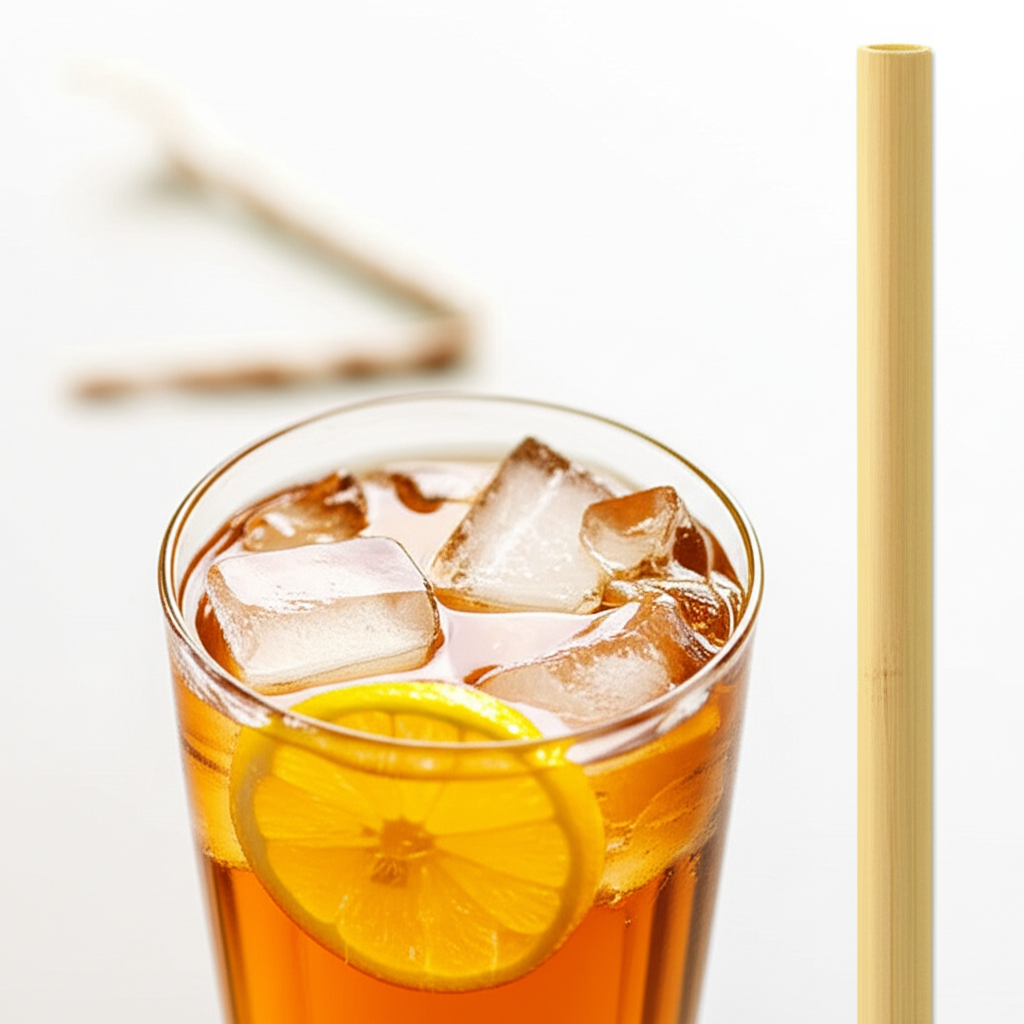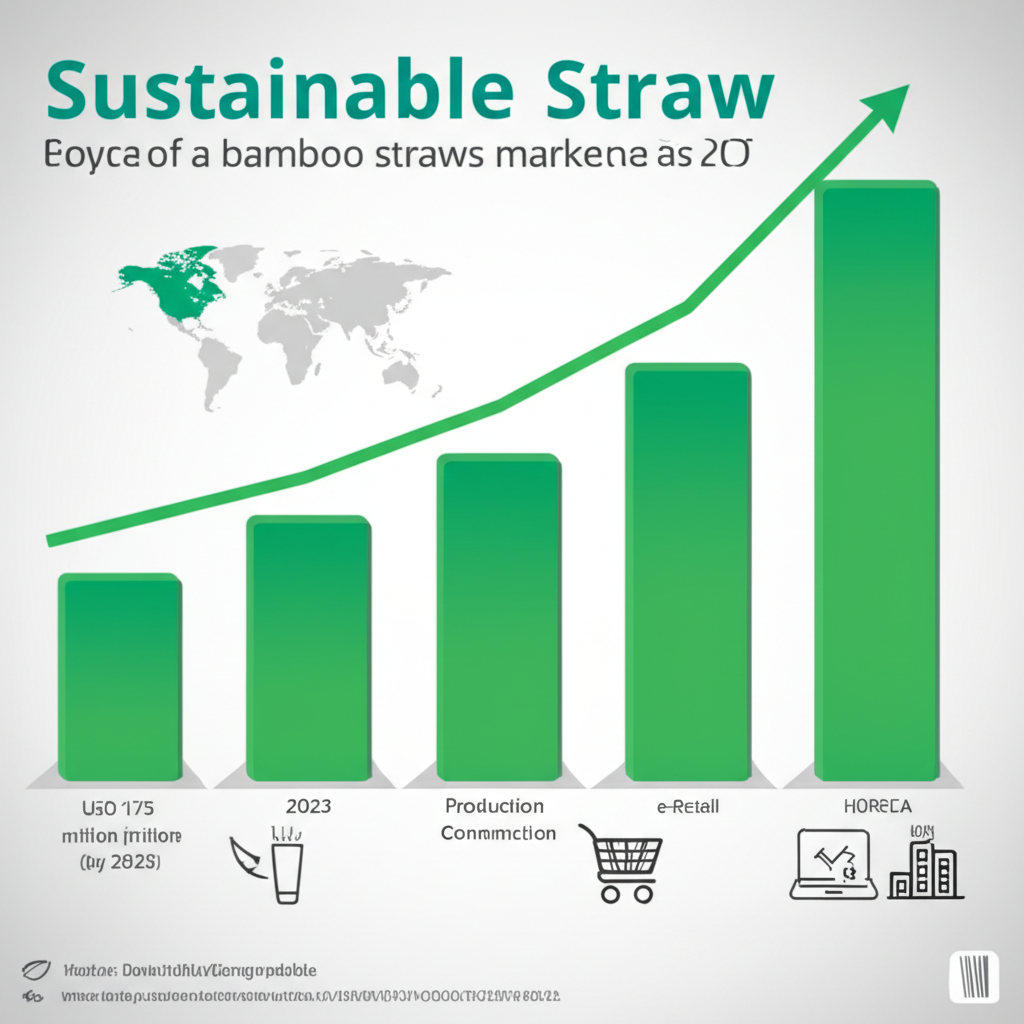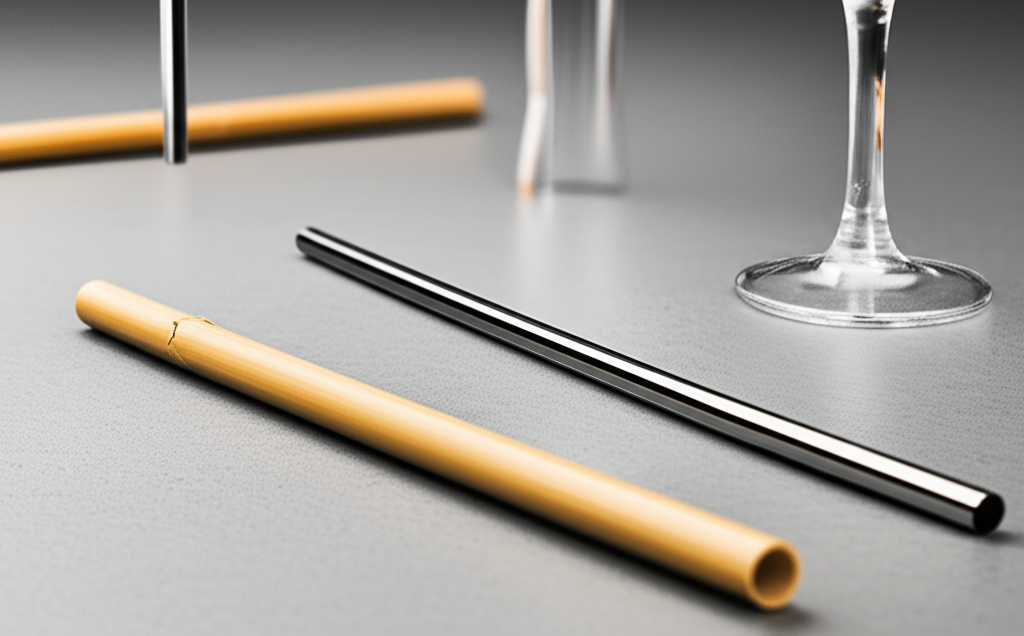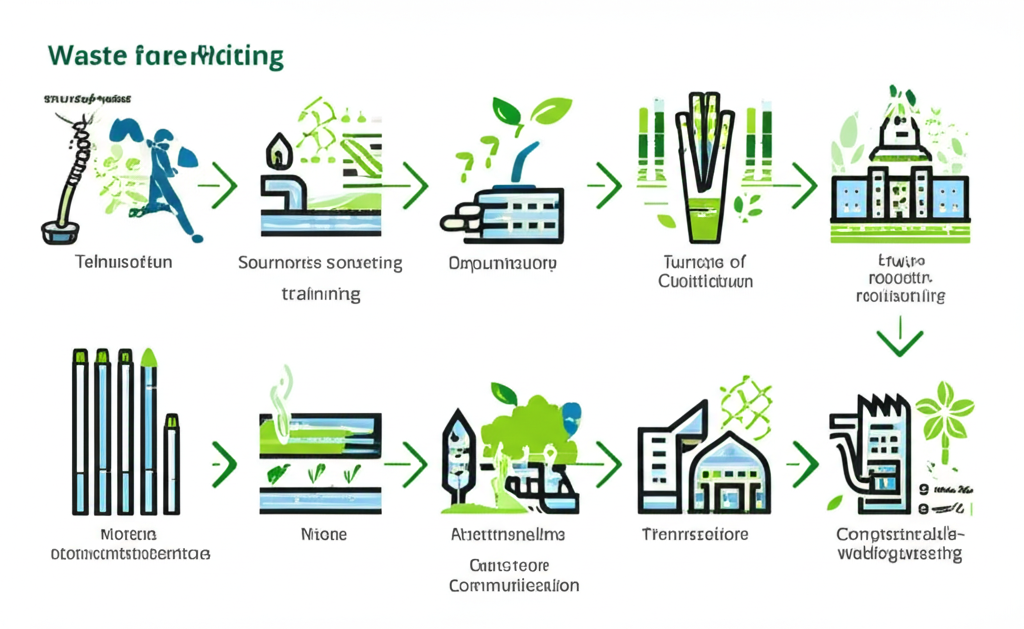Kòm administratè akizisyon, direktè operasyon, ofisye dirab, ak ekzekitif chèn ekipman pou, ou navige yon jaden flè konplèks kote egzijans anviwònman entèsekte ak satisfaksyon kliyan ak efikasite operasyonèl. Pouse mondyal la pou dirab te transfòme ap atann, ak yon estime 70% nan konsomatè globalman vle peye plis pou mak dirab. Men, tranzisyon an nan ekolojik-zanmitay jetab souvan vini ak defi enprevi, patikilyèman nan anviwònman wo-volim tankou sèvis manje ak Ospitalite.
Dilèm nan pay papye sèvi kòm yon rapèl stark nan solisyon ki tonbe kout. Ki fèt tankou yon ranje rapid pou yon sèl-itilize entèdiksyon plastik, altènativ sa yo souvan desevwa, byen vit sikonbe likid, transmèt yon gou dezagreyab, ak génération yon kaskad nan plent kliyan. Beyond mekontantman imedya a, sa a tradui nan depans kache: ogmante pousantaj ranplasman, pèsepsyon mak domaje, ak gaspiye efò nan Smart apwovizyone "dirab" opsyon ki fail fè.
Imajine yon solisyon ki pa sèlman satisfè objektif dirab ou, men tou elve eksperyans nan kliyan, dirab nan yon repa oswa bwè san yo pa konpwomi. Sa a se kote-wo kalite pay banbou pwezante kòm yon kandida prometteur, ofri yon dirab, altènatif natirèl nan pwoblèm nan omniprésente nan jetab ti kannòt. Pou biznis ki vize pou balanse responsablite ekolojik ak ekselans operasyonèl, kesyon kritik la rive: fè pay banbou vrèman jwenn mou?
Repons lan definitif se non, pa nan fason a pay papye tradisyonèl fè. Kouri banbou, fabrike soti nan solid, fib natirèl, yo Enjenieri yo kenbe entegrite estriktirèl yo pou peryòd siyifikativman pi long lè ekspoze a likid. Sa a detèminasyon nannan pozisyon yo kòm yon chwa irezistib pou òganizasyon angaje nan vrèman dirab ak bon jan kalite eksperyans envite.

Chanjman an lwen plastik yon sèl-itilize se pi plis pase yon tandans; Li se yon enperatif regilasyon ak yon poto mitan idantite mak modèn atravè peyi Etazini an ak Ewòp. Biznis fè fas a ogmante presyon soti nan direktiv konplè, tankou Inyon Ewopeyen an nan yon sèl-itilize Plastik direktiv, ak eta-nivo entèdi atravè Etazini yo. Echèk yo adopte gaya, altènativ dirab pote pa sèlman risk konfòmite, men tou pri a byen mèb nan degrade konfyans kliyan ak lwayote. Pik papye ti kras, ki souvan vin bouyi oswa dezentegre nan minit, dirèkteman enpak satisfaksyon kliyan ak siyal yon dekonekte ant yon mak la nan deklare ekolojik-valè ak bon jan kalite pwodwi aktyèl li yo.
Konpozisyon natirèl Banbou a ofri yon kontrepwa irezistib pou defi sa yo. Estrikti inik fib li yo bay rezistans nannan nan absòpsyon likid, sa ki pèmèt li kenbe fòm li yo ak fonctionnalités byen lwen pi long pase papye. Kontrèman ak papye, ki depann sou tretman chimik oswa kouch epè reta saturation inevitab, banbou a difisil, fib natirèl yo se natirèlman plis dlo ki reziste. Pandan ke pay banbou ka absòbe kèk likid sou peryòd pwolonje, subtile chanje teksti yo, sa a pa mennen nan dezentegrasyon an rapid oswa karakteristik mushiness nan tokay papye yo. Gen kèk pwodwi inovatè, tankou "pay papye banbou kaka," menm konbine benefis ki genyen nan detèminasyon banbou a ak konvenyans nan papye, ki fèt espesyalman pou durability ranfòse ak reziste soginess.
Syans dèyè estabilite banbou a manti nan estrikti dans selilè li yo. Sa a pèmèt li kenbe tèt avè varyasyon tanperati konsiderableman byen, fè-wo kalite pay banbou apwopriye pou tou de bwason ki cho ak frèt. Pandan ke itilize souvan ak bwason trè cho ta ka evantyèlman diminye validite yo pa siye soti banbou a ak potansyèlman sa ki lakòz fant, pèfòmans jeneral yo byen depase papye. Pou sektè sèvis manje ak Ospitalite, sa vle di yon pay serye ki pa konpwomèt entegrite oswa tanperati bwè a. Yo ofri yon ayestetik natirèl ki amelyore prezantasyon, yo kapab itilize ankò ak swen apwopriye, ak enpòtan, pa separe nenpòt ki gou endezirab nan bwason ki gen, asire kliyan an jwi bwè yo kòm gen entansyon. Pou biznis angaje nan lonjevite nan chwa dirab yo, konprann ki jan yo pi bon swen pou pwodwi sa yo se esansyèl. Gid nou an souÈske pay banbou dekonpoze B2B dirab?Ofri Sur pi fon nan maksimize lavi a ak fen-of-lavi benefis nan sa yo altènativ natirèl.

Akizisyon estratejik nan jaden flè jodi a mande yon View holistic, balanse pri inisyal ak valè alontèm, enpak anviwònman an, ak enkondisyonèl satisfaksyon kliyan. Lè evalye altènativ pay dirab, yon konparezon detaye se kritik pou B2B desizyon-mizisyen.
Konparezon nan altènativ pay dirab: yon pèspektiv B2B
| Patikilarite | Banbou pay | Papier papye | Paille en fe | Paille vè | Pay silicone | Pay manjab (eg, pasta, alg) |
|---|---|---|---|---|---|---|
| B2B enpak | Dirab, ki kapab itilize ankò, natirèl ayestetik, pa gen okenn chanjman gou, natirèl anti -bakteri. Amelyore ekolojik-zanmi imaj mak. | Single-itilize, pòv eksperyans kliyan (mou, gou), to ranplasman segondè. Domaj pèsepsyon mak. | Trè dirab, ki kapab itilize ankò, dous, pa gen gou. Apèl nan segments prim. | Elegant, ki kapab itilize ankò, transparan pou netwaye. Premium santi. | Fleksib, san danje pou timoun yo, ki kapab itilize ankò. Bon pou démographie espesifik. | Kado, Zewo Waste. Pwen vann inik pou sèten eksperyans. |
| Risk Konfòmite | Ba (biodégradables, konpostabl). Enkyetid konsènan PFAs nan kèk mak nesesite atansyon Smart apwovizyone. | Modere-wo (PFAS komen, mikroplastik koule soti nan penti). Souvan echwe ap atann pèfòmans pou entèdi. | Ba (konplètman resikle, pa gen okenn PFAs). | Ba (resikle). Enkyetid konsènan PFAs nan kèk mak. | Ba (ki kapab itilize ankò, inaktif). Pa biodégradables. | Ba (biodégradables, konpostabl). |
| ROI potansyèl | Higher initial cost, but reusability drives long-term savings. Improved customer loyalty & brand value. | Pri inisyal ki ba, men gwo depans kache (ranplasman, plent kliyan, domaj repitasyon). | Segondè pri inisyal, to ranplasman ki ba anpil (long validite). Bonjan pwopozisyon valè mak. | Segondè pri inisyal, to ranplasman ki ba si okipe ak anpil atansyon. | Modere pri inisyal, bon validite. | Varyab pri inisyal (ka segondè), yon sèl-itilize. Pi wo valè kado pase ROI dirèk. |
| Konsiderasyon kle | Proper cleaning & drying essential for reuse. Source PFAS-free. | Tendans pou fè, ka chanje gou bwè. Enkyetid kontaminasyon PFAS toupatou. | Chalè/frèt konduktivite risk, potansyèl pou aksidan, pa ideyal pou tout démographie. | Risk frajil, rupture. | Mwens ayestetik prim pou kèk mak. | Lavi etajè limite, ka chanje gou bwè, kondisyon depo espesifik. |
Biznis evalye opsyon sa yo dwe konsidere pa sèlman materyèl la, men enplikasyon yo lifecycle plen. Pou egzanp, pandan y ap pay kan ofri yon altènatif biodégradables konvenkan, konprann pèfòmans yo, espesyalman konsènan soginess, se kritik. Pou yon plonje pi fon nan yon lòt chwa popilè, eksploreÈske pay kan jwenn mou?
Insights Industry: navige mache a pay dirab
The global bamboo straw market is undergoing robust expansion, reflecting heightened environmental awareness and an urgent need for sustainable solutions. Valued at approximately USD 175 million in 2023, projections anticipate a substantial rise to around USD 490 million by 2032, propelled by a compound annual growth rate (CAGR) ranging between 5% and 12% over the next decade. This growth is predominantly driven by stricter governmental regulations on single-use plastics in regions like the EU and various US states, alongside increasing consumer demand for eco-friendly products.
The foodservice industry, encompassing hotels, restaurants, and cafes (HORECA), stands as a primary catalyst, expected to account for a significant 58.6% of the market by 2025. E-retail also commands a substantial share, holding 38% in 2024. Regionally, Asia-Pacific dominates both production and consumption, while North America is poised to be the fastest-growing market. This regional dynamic underscores the importance of a globally informed procurement strategy. Further insights into comparative sustainability for hospitality can be found in our analysis ofSugarcane vs. Bamboo Straws for Sustainable Hospitality.
Innovations and Future Outlook:
Endistri a pay dirab se lwen soti nan kowonpi. Konpayi fabrikasyon yo aktivman pouswiv diferansyasyon pwodwi ak pèfòmans ranfòse. Innovations gen ladan nouvo liy nan pay banbou ki fèt espesyalman pou bwason ki cho nan adrès enkyetid durability nan pi wo tanperati. Rechèch se tou delving nan materyèl ibrid konbine plant ki baze sou Polymers ak dlo ki reziste penti, e menm grenn pitit-entegre pay ki ka plante apre yo fin itilize ankouraje nouvo kwasans plant, siyal yon avni kote jetab aktivman kontribye nan rejenerasyon ekolojik.

Adrese enkyetid biznis: ijyèn, validite, ak kontwòl kalite
Even with their clear advantages, concerns around hygiene, lifespan, and quality control are valid for B2B applications.
- Hygiene Protocols: Bamboo’s porous nature necessitates diligent cleaning. For reusable bamboo straws in commercial settings, prompt cleaning after each use, using dedicated brushes, and occasional boiling for thorough sanitization are crucial. Proper air drying in a well-ventilated area, avoiding airtight containers, is vital to prevent mold growth. Fortunately, bamboo naturally contains “bamboo kun,” an antibacterial agent that helps limit germ proliferation.
- Maximizing Lifespan: Avèk swen ki apwopriye, yon bon jan kalite ki kapab itilize ankò pay banbou ka dire pou plizyè mwa nan yon ane. Siy degradasyon tankou fant vizib, divize, odè ki pèsistan, oswa siyifikatif ralantisman endike li nan tan pou ranplasman.
- Konfli nan PFAS ak bon jan kalite Smart apwovizyone: Yon devlopman kritik pou pwofesyonèl akizisyon te yon etid 2023 pibliye nan Aditif manje ak kontaminan journal, which revealed that four out of five bamboo straw brands tested contained “forever chemicals” (PFAS). This finding, alongside similar contamination in many paper straws, underscores the paramount importance of meticulous supplier vetting. Reputable companies like Bambu® have established rigid quality control practices and inspection processes since 2012, offering products like their “Precision Bamboo Straws” which are identical in size and shape, and crucially, are verified PFAS-free. Sourcing from suppliers with transparent manufacturing processes and third-party certifications is no longer optional; it’s a necessity. This ensures that your sustainable choice doesn’t inadvertently introduce other environmental or health hazards. You can find more information about the PFAS issue in various environmental and scientific publications, such as those from the U.S. Environmental Protection Agency (EPA) or European Chemicals Agency (ECHA).
- Carbon Footprint Considerations: While bamboo is a rapidly renewable resource, the carbon footprint associated with harvesting, processing, and particularly international shipping, must be acknowledged. Businesses should prioritize suppliers committed to sustainable cultivation practices, minimizing transport distances where possible, and utilizing eco-friendly packaging to mitigate this impact.

Moving towards truly sustainable operations demands a strategic shift from reactive problem-solving to proactive, informed decision-making. Implementing high-quality bamboo straws in your operations offers a tangible pathway to achieving this. The first step involves rigorous supplier vetting: ask critical questions about sourcing transparency, manufacturing processes, and quality control. Insist on third-party certifications, especially those verifying PFAS-free products and sustainable forestry practices.
Crucially, invest in staff training. Educate your team on the proper handling, cleaning protocols (including sanitization for reusable options), and optimal storage methods for bamboo straws to maximize their lifespan and maintain hygiene standards. Simultaneously, engage in clear and consistent customer communication. Inform your patrons about your commitment to sustainable choices and guide them on proper disposal for single-use bamboo straws or how to return reusable ones. By tracking waste reduction metrics and observing enhanced brand perception, you can quantify the positive impact of these initiatives.

Choosing high-quality bamboo straws is more than an eco-friendly gesture; it’s a strategic business decision that enhances your brand’s reputation, mitigates compliance risks, and delivers a superior customer experience. By embracing a durable, natural, and genuinely sustainable solution, your organization can significantly reduce operational costs associated with flimsy alternatives, safeguard brand value in an eco-conscious market, and capture a larger share of the growing demand for responsible consumer and business practices.
Take the next step towards sustainable excellence today.
Explore our curated selection of certified, high-quality bamboo straws, specifically engineered for B2B needs. Contact our experts for a personalized consultation on seamlessly integrating sustainable straw solutions into your operations, or request a sample kit to experience the difference firsthand and witness true durability.
Contact Our ExpertsRequest a Sample Kit
Kesyon yo poze souvan
No, high-quality bamboo straws generally do not get soggy in the same way traditional paper straws do. Their sturdy, natural fibers maintain structural integrity significantly longer when exposed to liquids, although prolonged soaking can subtly alter their texture.
Yes, with proper care and maintenance, bamboo straws are reusable. For commercial use, this involves prompt cleaning after each use, thorough drying, and occasional sanitization (e.g., boiling). They can last for several months to a year under these conditions.
Bamboo straws offer several advantages for businesses, including enhanced brand image, compliance with single-use plastic regulations, improved customer satisfaction due to their durability and neutral taste, natural antibacterial properties, and the ability to reduce waste.
A 2023 study found PFAS in some bamboo straw brands. It is crucial for businesses to source bamboo straws from reputable suppliers who provide transparent manufacturing processes and third-party certifications ensuring their products are PFAS-free to avoid unintended environmental or health hazards.
For reusable bamboo straws, clean them promptly after each use with a straw brush and warm soapy water, rinse thoroughly, and allow them to dry completely in a ventilated area. Store them in a dry, clean container to prevent mold or bacterial growth. Occasional sanitization, such as boiling, helps extend their lifespan and maintain hygiene.






